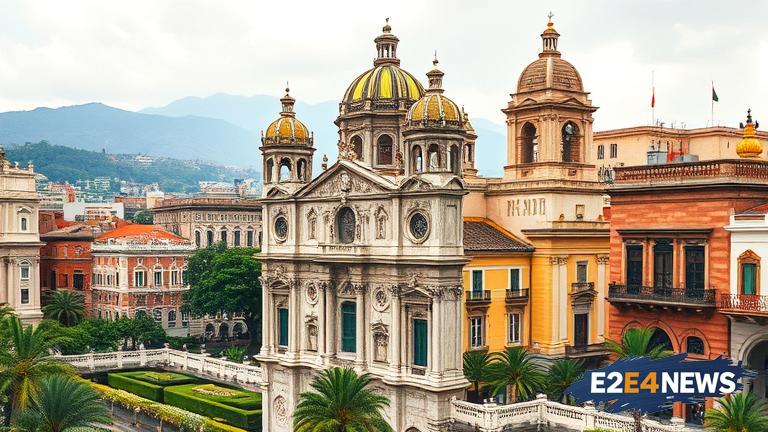Mexico City, the capital of Mexico, has reached a significant milestone, celebrating 700 years since its founding by indigenous people. The city’s rich history and cultural heritage are a testament to the resilience and diversity of its people. Founded in 1325 by the Aztecs, Mexico City has undergone numerous transformations, from a small island settlement to a thriving metropolis. The city’s strategic location on the shores of Lake Texcoco made it an attractive spot for trade and commerce, drawing people from all over the region. Over the centuries, Mexico City has been shaped by various cultures, including the Spanish, who conquered the city in 1521. The city’s historic center, a UNESCO World Heritage Site, is a treasure trove of architectural styles, from the Aztec temple of Templo Mayor to the stunning Cathedral of the Assumption. Mexico City is also home to numerous museums, galleries, and cultural institutions, showcasing the country’s rich artistic and cultural heritage. The city’s vibrant neighborhoods, such as La Condesa and Roma, offer a glimpse into the daily lives of its inhabitants, with their colorful markets, street food, and lively nightlife. Mexico City’s cuisine is a fusion of indigenous, Spanish, and African influences, with popular dishes like tacos, mole, and chiles rellenos. The city’s cultural festivals, such as the Day of the Dead and the Fiesta de la Vendimia, are a celebration of its rich traditions and customs. Despite facing numerous challenges, including earthquakes, floods, and economic crises, Mexico City has consistently demonstrated its ability to adapt and thrive. The city’s inhabitants, known as chilangos, are a testament to its resilience and warmth, welcoming visitors from all over the world. Mexico City’s 700th anniversary is a celebration of its history, culture, and people, and a reminder of the city’s importance as a cultural and economic hub in the region. The city’s government has organized various events and exhibitions to commemorate the occasion, including concerts, dance performances, and historical reenactments. Visitors can explore the city’s many museums and cultural institutions, which are offering special exhibitions and discounts. Mexico City’s 700th anniversary is also an opportunity to reflect on the city’s challenges and opportunities, from addressing issues like traffic and pollution to promoting sustainable development and social justice. As the city looks to the future, it is clear that its rich history and cultural heritage will continue to play a vital role in shaping its identity and direction. Mexico City’s 700th anniversary is a celebration of its people, culture, and history, and a reminder of the city’s importance as a vibrant and dynamic metropolis. The city’s inhabitants are proud of their heritage and are committed to preserving and promoting it for future generations. Mexico City’s cultural significance extends beyond its borders, with its influence visible in art, literature, music, and film around the world. The city’s 700th anniversary is a testament to its enduring legacy and its continued relevance in the modern world. In conclusion, Mexico City’s 700th anniversary is a celebration of its rich history, cultural heritage, and people, and a reminder of the city’s importance as a cultural and economic hub in the region.





